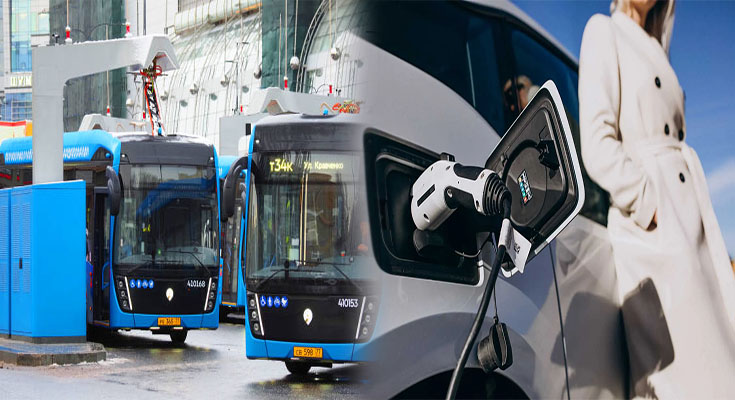In the global quest to combat climate change and reduce greenhouse gas emissions, transportation electric vehicles (EVs) have emerged as a key solution to mitigate the environmental impact of traditional combustion engine vehicles. By transitioning to electric vehicles, we can significantly lower carbon emissions, decrease air pollution, and contribute to a more sustainable future. In this article, we will delve into the ways in which transportation electric vehicles reduce carbon emissions and their pivotal role in achieving a greener, cleaner transportation landscape.
1. Zero Tailpipe Emissions
One of the most significant advantages of electric vehicles is their ability to produce zero tailpipe emissions. Unlike traditional fuel vehicles that rely on internal combustion engines powered by gasoline or diesel, electric vehicles run on electricity stored in batteries. As a result, EVs do not emit harmful pollutants such as carbon dioxide, nitrogen oxides, and particulate matter directly into the atmosphere. By eliminating tailpipe emissions, electric vehicles play a vital role in improving air quality and reducing the carbon footprint associated with transportation.
2. Shift to Renewable Energy
The environmental benefits of transportation electric vehicles are further amplified when paired with a shift towards renewable energy sources. As the grid continues to transition towards cleaner and more sustainable energy generation, the electricity used to charge electric vehicles becomes greener. By leveraging renewable energy sources like solar, wind, and hydroelectric power for charging infrastructure, EVs essentially run on clean energy, resulting in a significant reduction in carbon emissions throughout the vehicle lifecycle. This synergy between electric vehicles and renewable energy underscores a holistic approach to decarbonizing transportation.
3. Energy Efficiency
Electric vehicles are inherently more energy-efficient than traditional fuel vehicles, leading to lower overall energy consumption and reduced carbon emissions. Internal combustion engines in traditional vehicles are inherently less efficient, as a significant portion of the energy from gasoline is lost as heat during combustion. In contrast, electric vehicles convert a higher percentage of the energy stored in their batteries into motion, resulting in greater efficiency and reduced greenhouse gas emissions per mile driven. The improved energy efficiency of EVs contributes to a more sustainable transportation ecosystem and helps combat climate change.
4. Lifecycle Emissions Reduction
Beyond the operational phase, transportation electric vehicles also offer benefits in terms of lifecycle emissions reduction. While the production of electric vehicle batteries and components may have an initial carbon footprint, advancements in battery technology, recycling initiatives, and improvements in manufacturing processes are continuously reducing the environmental impact of EV production. When considering the entire lifecycle of an electric vehicle, including manufacturing, use, and disposal, EVs generally emit fewer greenhouse gases compared to traditional fuel vehicles. This holistic approach to assessing emissions underscores the long-term environmental benefits of electric vehicles.
Transportation electric vehicles play a crucial role in reducing carbon emissions and driving the transition towards a sustainable and low-carbon transportation sector. From zero tailpipe emissions and reliance on renewable energy to improved energy efficiency and lifecycle emissions reduction, EVs offer a cleaner, greener alternative to traditional combustion engine vehicles. As the world embraces electric vehicles as a key component of the transportation ecosystem, continued investments in EV infrastructure, technology, and policy support are essential to accelerating the shift towards a zero-emission future. By leveraging the environmental benefits of transportation electric vehicles, we can significantly reduce carbon emissions, combat climate change, and pave the way towards a more sustainable and environmentally friendly transportation landscape.













